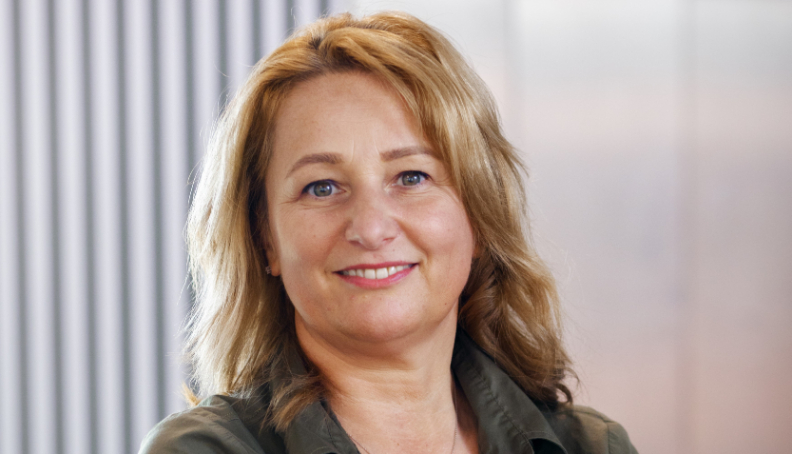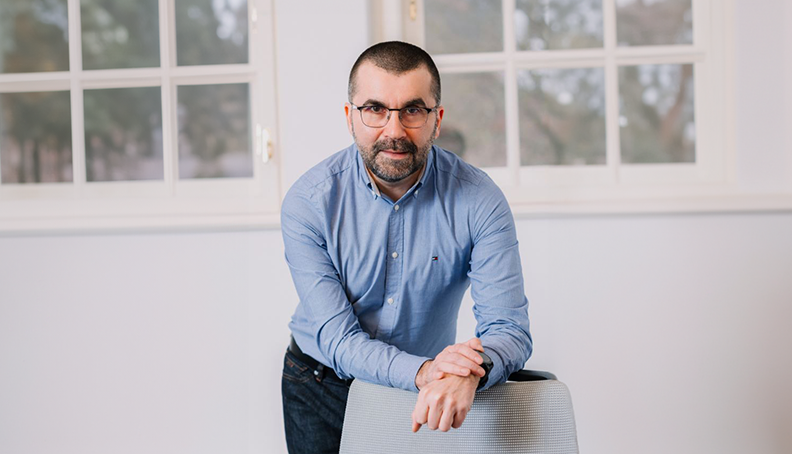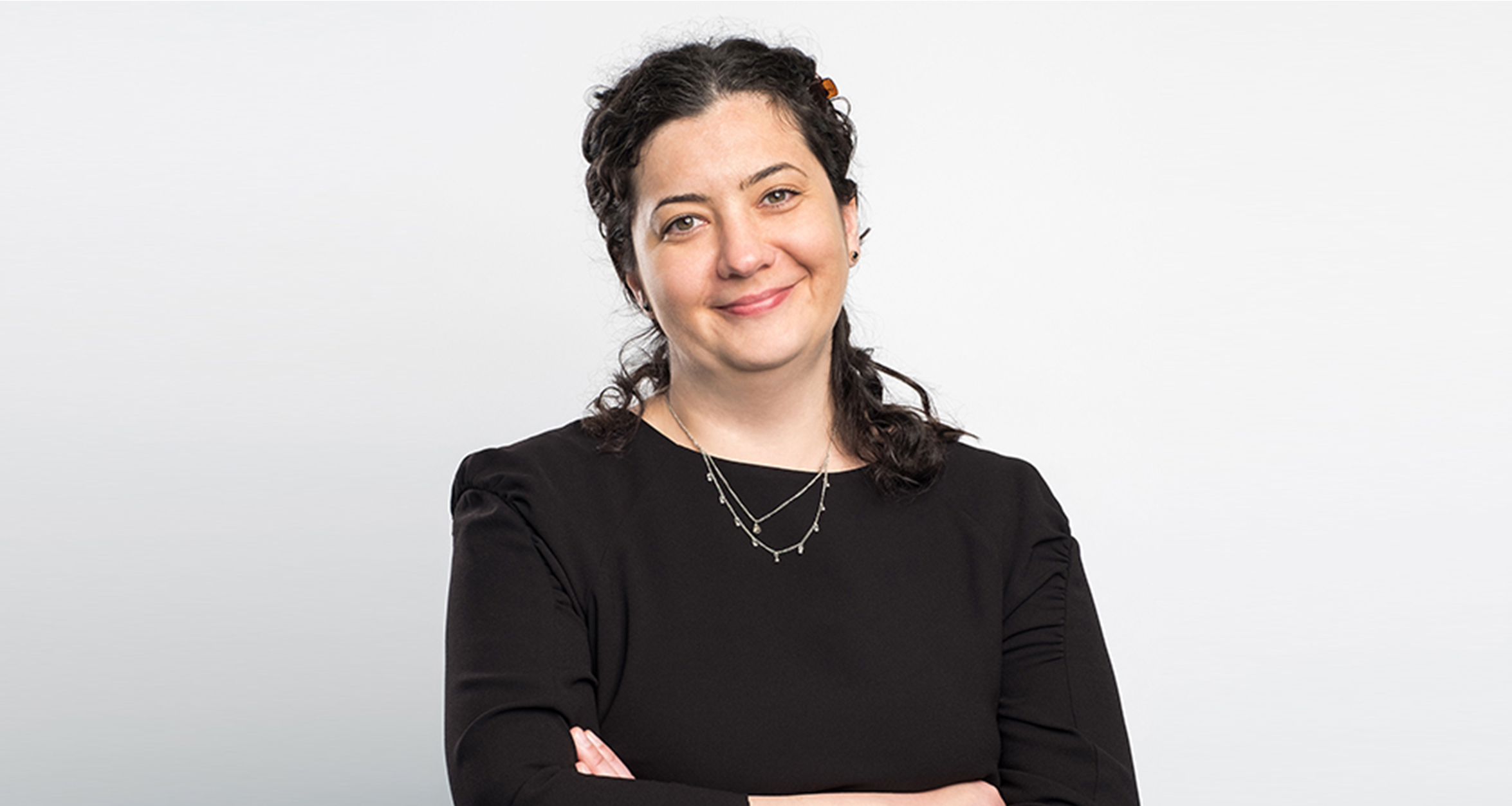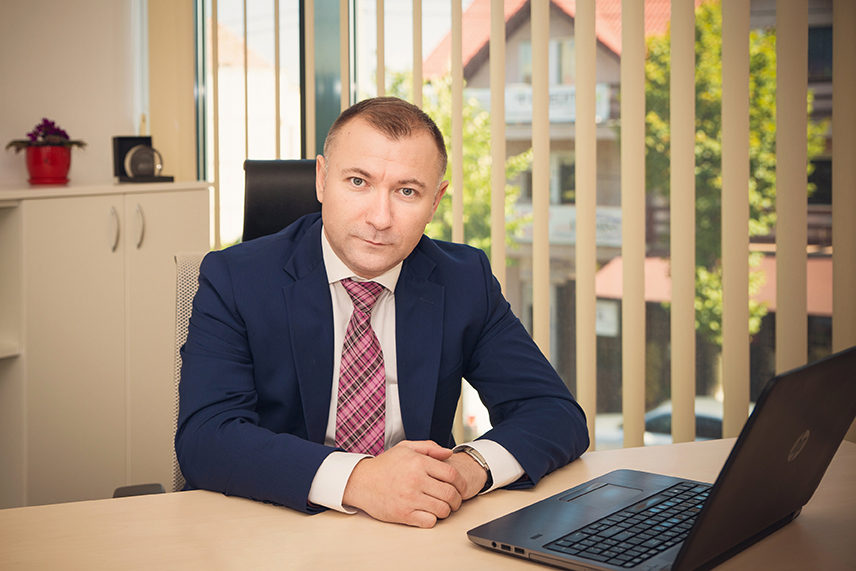Mariana Chindriș: "NEO, more than an attractive experience"
September 02 September 2020 Reading time 11:00 minutes

Mariana Chindriș, Executive Director - Chief Technology Officer BT recently gave an interview for Banking News, which we reprint here on the blog. You will learn more about NEO, digital banking and trends. Enjoy 😊!
"We have a very good adoption of NEO among customers selected for testing, which makes us confident that the solution is mature enough and in a short time we will be able to offer it to all customers, including being a reason for many to work with our bank at some point," Mariana Chindriș said in the interview with our publication. The official of Banca Transilvania takes an x-ray of the road that the NEO platform has travelled so far and analyses the trends observed on the digital banking market in Romania.
What is the news about NEO, Banca Transilvania's new online banking platform, what development directions are you pursuing, what future plans do you have in mind, what innovations does it bring and when will it be available to all Romanians?
NEO is an essential pillar in our plan to build the best online experience for our customers. The new internet banking and mobile banking platform is part of our bank's broader program to develop an ecosystem that integrates a set of interconnected services through which customers have everything at their fingertips for a #NEOexperience, as we now call it. What did this mean? More than just developing a compelling mobile experience, and that's why it took some time. It required a complete rebuild from the inside out to allow for real-time direction changes. Just recognising the customer who uses our services is no longer enough, we've known this for years. We need to know as much as possible about the customer's behaviour, to anticipate what they want, wherever they are. And NEO is breaking new ground in exactly this area and helping us to ensure that BT and the banking we do is alongside companies that are known for their online services, especially online sales.
Coming back to NEO news, an example of this is #NEORadar, functionality developed thanks to our partnership with Personetics, an Israeli FinTech leader in the cognitive banking apps market. Thanks to Personetics we have integrated artificial intelligence into #NEORadar, turning NEO into a financial friend that learns money behavior, provides behavior-based advice, signals when recurring payments need to be made, highlights unusual activity in one's accounts, anticipates the need for cash, and comes up with tips that improve money management. Another example is #NEOCash, an "invisible" card that customers can use to withdraw cash from BT ATMs with their phone by generating a code directly from the app.
NEO also comes with new functionalities for companies by integrating the solution with the invoicing and accounting platform developed by another of the bank's partners, SmartBill, thus facilitating the automatic reconciliation of bank transactions, as well as the viewing of invoices due for payment and the automatic initiation of payments to suppliers directly from NEO. The NEO platform is now available on the invitation-based model because it is in Beta, allowing us to collect consistent feedback. The architecture of the solution will allow us to quickly integrate new features as our customers request or appreciate them, or as new ideas come to us. NEO is now for early adopters and the new enthusiasts. We have very good adoption of NEO among customers selected for testing, which makes us confident that the solution is mature enough and we will soon be able to offer it to all customers, including being a reason for many to work with our bank at some point. In this regard, the bank has launched #NEOCont for both individuals and companies, a full online solution for opening a current account and issuing a card online. #NEOCont is among our early pandemic launches to support customers and home banking.
How many customers are currently using this platform, what is the profile of NEO users and what kind of operations do they mainly perform?
NEO will run for a period alongside BT24 Internet Banking and Mobile Banking precisely to give customers the convenience of switching to the new app when they feel ready to try a different way of banking. For this reason we haven't had a customer migration campaign from BT24 to NEO, but BT's expectation is that this will happen quickly once the platform is available to all customers. In other words, we expect that by the end of the year most of BT24's active customers will have activated NEO. In addition to classic operations such as money transfer, utility payments, limit management on cards, we see a big appetite for new functionalities offered by NEO, such as cardless cash withdrawal from ATMs, as well as application for various new products.
What trends do you observe in the Romanian payments and banking market, generated by the coronavirus pandemic, how has Banca Transilvania responded to the challenges on this level and what transformations are observed among BT customers?
The pandemic has greatly altered the payment behaviour of our customers. BT even published a White Paper in May this year on the trends in the Romanian payments market generated by the pandemic, as we have observed them in our customers. The restrictions imposed by the context we are going through, but also the need for security, have led more and more Romanians, even the most conservative ones, to turn to online services and increasingly use bank cards as a means of payment. This is how we have noticed completely new groups of consumers trying digital products and services for the first time. In March-April, more than 150,000 customers of Banca Transilvania made their first online card payment, we saw an accelerated growth in e-commerce transactions, almost doubling in Q1 2020 compared to Q1 2019. At the same time, out of a desire to distance themselves from cash, we have seen accelerated growth in BT Pay adoption and card payments, 1 in 4 customers use the card enrolled in wallets, so our bank has now reached 1 million unique digital cards out of over 4 million physical cards active in BT Pay, Apple Pay, Fitbit Pay and Garmin Pay. And in the merchant area we are seeing an acceleration in the implementation of card payment acceptance solutions in various forms, either ecommerce or physical POS. POS transactions have increased by 16%, while cash transactions have declined by around 10% during the pandemic period.
How ready are Romanians for the adoption of digital banking, how familiar are they with digital transformation and what measures are needed to speed up digitization in Romania?
The pandemic has accelerated the shift to using digital services, as we have seen, and the same is true for banking. At BT we have adapted and moved quickly and almost exclusively remotely to serve customers and for the safety of employees. In all of this, technology has played a key role. More than 400 of the bank's branches and agencies were open throughout the period of the state of emergency, while demand for online banking increased. Behind it was technology, as well as the digital skills of the team. For example, the instalment deferment facility our bank applied to 41,000 customers during this period meant huge volume for the BT Contact Centre team, as this was the main way clinicians connected with our bank remotely.
In order to respond as quickly as possible to requests, we have come up with digital solutions complementary to the traditional ones, developing both automated workflows and the chatbot Ino on the bank's website, which has helped us a lot with non-stop responses to requests on this subject. Between Ino and customers there were almost 350,000 messages. What also helped us enormously was another app that was already being developed by the bank in partnership with CallVU, another FinTech from Israel. In it we launched two new options during the pandemic, the possibility of deferring installments and opening a PFA account. And since the start of the pandemic and so far, more than 700 PFA accounts have been opened and the predominant areas of activity of the new companies are: trade, IT&C, construction, transport, and hotels and restaurants. Thus, 40% of the calls coming into the Call Centre have been resolved through automated solutions, without human intervention. I believe that Romanians, in general, are ready for digitization because they are adaptable, it only remains that through a joint effort of the economic environment and the authorities to prepare the infrastructure and legislative framework that will allow us to make the most of this opportunity to digitize the services offered to our customers.
How can digital banking contribute to narrowing the gap between urban and rural areas in our country and how present is Banca Transilvania outside the major urban developments? Digital can make a major contribution to reducing the gap between rural and urban, but a first condition is to bank the population in these areas. Banking first, then digitalisation. The penetration of banking services in Romania is still the lowest among EU Member States, unfortunately. The low level of online banking usage is also due to the fact that about 2 out of 5 Romanian adults, i.e. 42%, do not have a bank account. In terms of basic digital skills in Romania, more than 18% of the population aged 16-74 have never used the internet. A big step would be greater involvement of banks in rural areas, along with programmes that target education in schools, entrepreneurship programmes, financial assistance and support through banks.
Digital transformation is the hallmark of companies and industries that want to change, to be at the forefront, including as a business model. In addition, there is a need for continuous learning to acquire upskills - new digital skills or to improve the ones people already have - which is an indispensable step in the digital transformation process of a company, an employee and, why not, a person who wants to be as ready as possible for the world of today. That's how we are at BT, integrating different technologies - from artificial intelligence to robotics - with influence on the way employees work, but also on the way customers interact with our bank. Even if, over time, there will be more and more industries where certain professions will be gradually taken over by computer algorithms, in banking, or rather at Banca Transilvania, for everything we do we need people because they bring Human Banking.

Press contact
Other articles


A little more
I just sent an email to you. Confirm your subscription by clicking on the link in the email.











